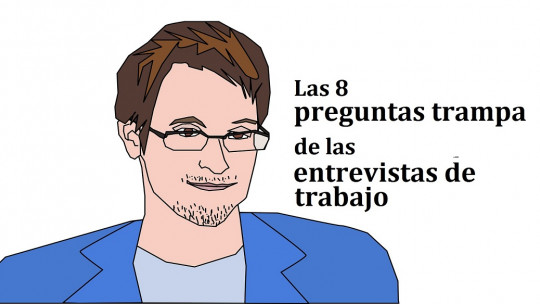On some occasion, you will surely have noticed that
Certain people manage to do things that seem very difficult and also in record time
So you will meet someone who, working a few hours a day, earns a lot of money or who obtains academic results by investing little time in studying.; or who, in addition to studying, works with a much higher performance compared to his colleagues and only dedicates two or three hours to studying (not including weekends).
The Pareto Principle: a trick to understand success and failure
How do they achieve it? What’s the trick? You should know one thing: you can also do the same as them, in what way? Well, by applying the
Pareto principle
The name of this method is due to Vilfredo Pareto, an economist and sociologist of the 20th century. In Italy, at that time, 20% of the population monopolized 80% of the economic capital. This same phenomenon can be extrapolated, today, to the rest of the world, however the pattern remains the same: few hoard a lot while the majority have very little
An example to understand the 80/20 rule
I am going to explain my personal experience applying this system. Previously, I spent a huge amount of time at work and the only drawback was not only the hours invested, but also the effort involved. You could say that I was the one who arrived first at the office and left the last, I had no choice but to dedicate my nights and weekends to work.
Despite my great daily effort, I did not stand out in terms of merits. The credit went to others who apparently worked much less This caused me enormous frustration, I told myself that I was not trying hard enough but then even if I tried much harder, if possible, the same thing happened, just as in the myth of Sisyphus, he carried a rock to the top of the mountain. mountain so that just as it almost arrives, it will roll down having to climb it again every day one after the other.
At that moment I realized that there was something that wasn’t working It couldn’t be that, using all that time and effort, he wouldn’t obtain the same achievements as other classmates, even though he was just as intelligent. I thought, there’s something I need to change, and so it was, I started noticing this set of people. I began to pay attention to how they did things and compare it with the way I did them. These people did exclusively what they should, but not only this, but they also did it as it should. They did things well, efficiently.
However, I did it exactly the opposite, I exceeded what I should do and consequently I did not do what I should do as it should be done For example, when writing a report, he added countless details and embellished it so that it was pleasant to read. I noticed that this group of people did just the opposite, they stuck to writing down what was strictly necessary without decorations or flourishes in a way that saved effort and time.
I would like to continue with many more examples but this way I would never finish. However, I do want to add that When applying the Pareto Principle my situation changed 180 degrees In this way I entered this privileged group. The Pareto Principle is not exclusively applicable to the workplace but also applies to studies and many other areas of our lives.
What exactly is the Pareto Principle?
This principle is also known as the “parsy factor principle” or the “80/20 rule.” It is not that the 80/20 rule applies on all occasions, sometimes it can vary to 90/10 or 70/30… In any case, we will take the 80/20 reference.
This is: 20% of what you use generates 80% of what you obtain and in the opposite sense, 80% of what you invest generates only 20%.
For example: I played basketball with my friends from my neighborhood, I took it very seriously, I wanted to be the best at playing, I trained very hard, I even dedicated extra hours alone. However, it was others who scored baskets and achieved success. I worked hard, ran non-stop, stole balls and made masterful passes, I was not a bad player but quite the opposite, it seemed like my level was beyond that of a neighborhood team. But despite everything, there were others who received ovations and always based on the goals scored.
It happened that 80% of what I did when preparing was related exclusively to ball possession, assisting teammates and physical fitness. And what did he get? Well, 20% of success. Because? Well, because I didn’t make baskets

The difference between the gregarious personality and the leader
How did that person or peer manage to lead the team and take the laurels? They didn’t run too much and they didn’t give 120% effort like I did when training. However, they made baskets and, ultimately, it was the score on the scoreboard that determined victory in a competition. I’m not talking about being selfish and hoarding the ball even if this means missing a basket opportunity because you don’t want to pass the ball. What I want to say is I wasn’t focusing on what produced the results I wanted I almost always thought about making good passes but not about being the one to score the basket, and although making good passes is not a bad thing, I didn’t get what I wanted that way.
To finish I will say that In the last seasons that I played, I had immensely more fun than in all the previous ones and I also became the player who scored the most goals Not because he was the best of all but because I thought about making baskets and focused my efforts on that. It’s not that he made them all, but he did make a good number of points during each game. I didn’t focus on outrunning the others or on making as many passes as possible, but simply on finding good positions to shoot. If he saw an opportunity he went for it to the fullest. And so, by running less, making fewer passes and getting much less tired, I obtained better results.
Everyday Examples of the 80/20 Principle
Taking advantage of the Pareto Principle in your studies
How to properly apply this maxim?
As we have seen, the Pareto Principle is something similar to the law of least effort. It allows us to focus our efforts on what is really productive for us; It helps us optimize our time and resources.
There they go three extra tips to correctly apply this principle :
Now you just have to wait for the results to come by themselves by applying this 80/20 rule!









